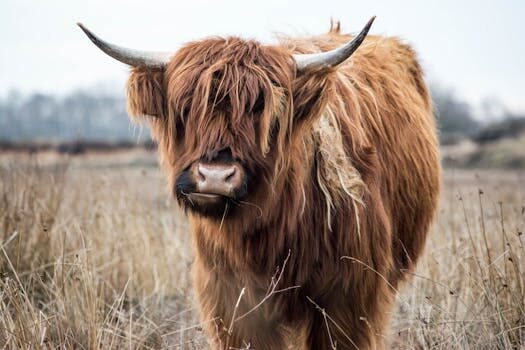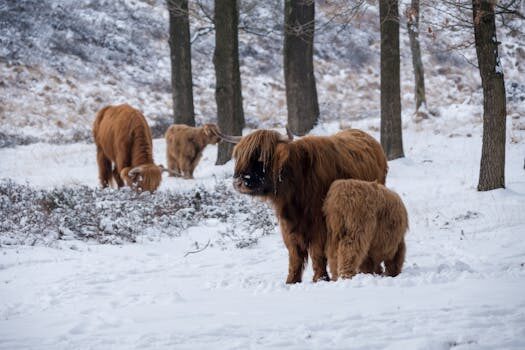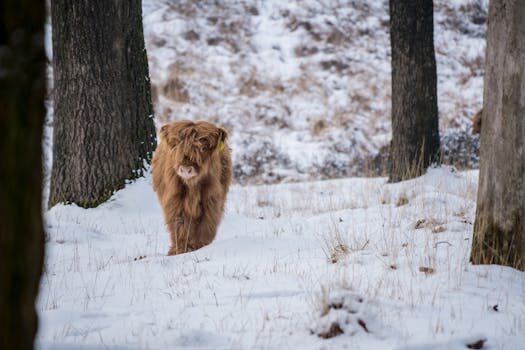Scottish last names and their meanings

Scottish last names hold a significant place in the cultural and historical tapestry of Scotland. They reflect a rich tradition influenced by various cultures and historical events that have shaped the Scottish identity over centuries. This guide aims to explore the fascinating world of Scottish last names, their meanings, and the unique characteristics that define them.
From the origins of these names to their meanings and classifications, the journey through Scottish last names unveils stories of lineage, heritage, and familial pride. Let's delve deeper into this captivating topic.
What are Scottish last names?
Scottish last names, also known as surnames, are an integral part of Scottish heritage. They often include prefixes like "Mac" or "Mc," which mean "son of" in Gaelic, indicating paternal lineage. This patronymic naming tradition highlights the importance of family connections in Scottish culture.
Many Scottish last names are derived from geographical locations, clan affiliations, or occupations. For instance, names like "Ferguson" stem from the Gaelic name "Fergus," meaning "man of strength." These connections to history and geography make Scottish last names particularly interesting.
The diversity in Scottish last names showcases the myriad influences that have shaped the country. From Celtic roots to Anglo-Norman influences, each surname tells a unique story of the family's past. As such, understanding these names provides insights into Scottish culture and genealogy.
What is the meaning behind Scottish last names?
The meanings of Scottish last names often reflect the traits or occupations of the individuals or their ancestors. For instance, the surname "Smith" is occupational, indicating a blacksmith, while "Hill" may refer to someone living near a hill. These meanings offer a glimpse into the lives of those who bore these names in earlier times.
Furthermore, many Scottish last names are linked to clans and kinship. The name "MacDonald" signifies "son of Donald," connecting individuals to the MacDonald clan, one of the largest and most famous Scottish clans. This connection emphasizes the importance of clan identity in Scottish culture.

Another aspect of the meaning behind Scottish last names involves geographic features. Names like "Loch" or "Glen" denote a connection to specific landscapes in Scotland, indicating where the family may have originated. This geographic influence enhances the understanding of Scottish last names and their meanings.
What are some unique Scottish last names?
Scottish last names are not only rich in history but also in uniqueness. Some names, although less common, carry fascinating stories. For example, "MacAulay" means "son of Aulay," and it is believed to have originated from the Gaelic "Mac Amhalghaidh." This name reflects a lineage that can be traced back centuries.
Similarly, "MacTavish" is an intriguing surname with a unique meaning. It translates to "son of Tavis," and its rarity adds to its charm. These unique Scottish last names and their origins are often a source of pride for those who bear them, representing a distinct family heritage.
- MacGregor: Meaning "son of Gregor," this name is associated with one of the oldest clans in Scotland.
- MacKenzie: This name signifies "son of Coinneach" and has strong ties to the Highland region.
- MacPherson: Meaning "son of the parson," this name has historical roots connected to religious leaders.
How do Scottish last names reflect family lineage?
Family lineage is intricately woven into the fabric of Scottish last names. The patronymic system, where "Mac" denotes "son of," illustrates the way families preserve their heritage through surnames. This naming convention allows descendants to maintain a connection to their ancestors and family history.
Moreover, the use of clan names as surnames further emphasizes familial ties. Individuals who share a surname often belong to the same clan, creating a sense of community and belonging. The significance of clan affiliation is deeply rooted in Scottish culture and reflects the importance of lineage in one's identity.
In addition, the evolution of Scottish last names over time shows how history and migration influenced family lineage. For instance, during the Highland Clearances, many families changed their surnames to adapt to new environments, yet the underlying connection to their roots remained strong.
What is the history of Scottish last names?
The history of Scottish last names is rich and complex, with roots tracing back to medieval times. The introduction of surnames in Scotland began around the 12th century, influenced by the arrival of the Normans and the establishment of feudal systems. This shift marked the transition from patronymic names to fixed surnames.

During the reign of King David I, many Anglo-Norman names were introduced, leading to a blend of cultures and naming conventions. As a result, surnames became more standardized, and early records, such as the Ragman Roll of 1296, highlighted the growing significance of surnames in Scottish society.
Over the centuries, names evolved based on social, economic, and political changes. The emergence of occupational surnames during the Industrial Revolution further illustrates how societal roles influenced naming conventions. Thus, the history of Scottish last names reflects a dynamic interplay of culture and identity.
What are common occupational Scottish last names?
Occupational surnames are a notable category within Scottish last names, offering insights into the trades and roles of individuals in society. Names like "Baker," "Fisher," and "Taylor" indicate professions, showcasing the important trades that contributed to Scottish communities.
For instance, "Miller" refers to someone who operated a mill, while "Hunter" signifies an individual engaged in hunting. These names illustrate not only the occupations of ancestors but also shed light on the economic activities prevalent in different regions of Scotland.
- Cooper: A surname indicating a barrel maker, reflecting a vital trade in historical Scotland.
- Wright: This name refers to a craftsman or builder, showcasing skills essential for community development.
- Fowler: Signifying a person who trapped birds, this name connects to agrarian practices in Scottish history.
How are Scottish last names categorized?
Scottish last names can be categorized into several distinct types, each reflecting specific characteristics and origins. These categories include:
- Patronymic Names: Names derived from a father's name, such as "MacDonald" or "MacLeod."
- Geographical Names: Surnames that indicate a location, such as "Glasgow" or "Edinburgh."
- Occupational Names: Names that reflect professions, like "Smith" or "Miller."
- Descriptive Names: These names describe a characteristic, such as "Brown" for hair color or "Young" for youthfulness.
Understanding these categories not only clarifies the significance of Scottish last names but also highlights the historical migrations and cultural influences that have shaped Scotland over time. Each name carries a story and a connection to its heritage.
Common questions about Scottish last names
Related questions about Scottish last names
What is a typical Scottish last name?
A typical Scottish last name often features the "Mac" or "Mc" prefix, indicating "son of." Names like "MacGregor" or "MacKenzie" are widely recognized and reflect a proud lineage. These names are not only common but also carry deep historical significance within Scottish culture.

What is the rarest Scottish last name?
Among the rarest Scottish last names is "MacQuarrie," which is not frequently encountered today. This name is associated with a small clan in the Inner Hebrides and exemplifies how some surnames have become less common over time due to various historical factors.
What is the oldest Scottish last name?
The oldest Scottish last names are believed to include "MacDonald" and "MacGregor." These surnames have deep roots in Scottish history and can be traced back to the medieval period, showcasing the enduring legacy of Scottish clans and their influence on family identity.
What is an iconic Scottish name?
An iconic Scottish name would be "Wallace," made famous by the historical figure William Wallace. This surname carries significant cultural weight and represents Scottish resistance and pride. Names like "Bruce," associated with Robert the Bruce, also hold iconic status in Scottish history.